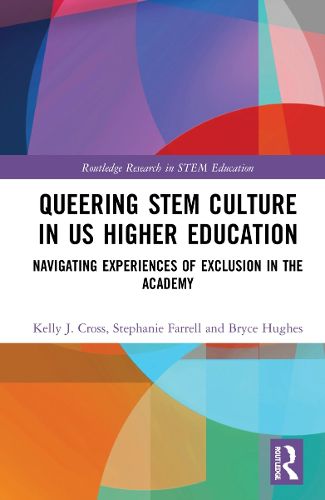Readings Newsletter
Become a Readings Member to make your shopping experience even easier.
Sign in or sign up for free!
You’re not far away from qualifying for FREE standard shipping within Australia
You’ve qualified for FREE standard shipping within Australia
The cart is loading…






Adopting an intersectional lens, this timely volume explores the lived experiences of members of the queer and trans community in post-secondary STEM culture in the US to provide critical insights into progressing socially just STEM education pathways.
Offering contributions from students, faculty, practitioners, and administrators, the volume highlights prevailing issues of heteronormativity and marginalization across a range of STEM disciplines. Autoethnographic accounts place minority experiences within the broader context of social and cultural phenomena to reveal subtle and overt forms of exclusion, and systematic barriers to participation in STEM professions, academia, and research. Finally, the book offers key recommendations to inform future research and practice.
This volume will benefit researchers, academics, and educators with an interest in higher education, engineering education, and the sociology of education more broadly. Those involved with diversity, equity, and inclusion within education, queer theory, and gender and sexuality studies will also benefit from this volume.
$9.00 standard shipping within Australia
FREE standard shipping within Australia for orders over $100.00
Express & International shipping calculated at checkout
Adopting an intersectional lens, this timely volume explores the lived experiences of members of the queer and trans community in post-secondary STEM culture in the US to provide critical insights into progressing socially just STEM education pathways.
Offering contributions from students, faculty, practitioners, and administrators, the volume highlights prevailing issues of heteronormativity and marginalization across a range of STEM disciplines. Autoethnographic accounts place minority experiences within the broader context of social and cultural phenomena to reveal subtle and overt forms of exclusion, and systematic barriers to participation in STEM professions, academia, and research. Finally, the book offers key recommendations to inform future research and practice.
This volume will benefit researchers, academics, and educators with an interest in higher education, engineering education, and the sociology of education more broadly. Those involved with diversity, equity, and inclusion within education, queer theory, and gender and sexuality studies will also benefit from this volume.